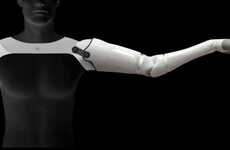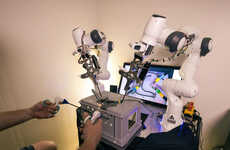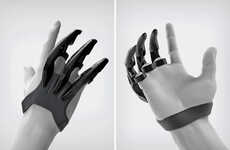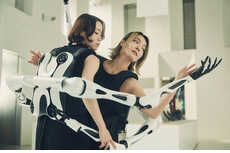This Software Algorithm Reduces the Reliance On Human Prosthetists
Rahul Kalvapalle — September 29, 2015 — Lifestyle
References: news.ncsu.edu & gizmag
A group of scientists and researchers at North Carolina State University have developed an highly advanced and intelligent software algorithm that does the job of a human prosthetist automatically and at a significantly lower cost and time.
Prosthetic limbs are complicated devices that cannot simply be slipped on and off like gloves or socks. They need to be fitted like custom shoes to the stump of the patient's remaining limb, before being tuned to match the wearer's physical characteristics such as their size, strength and behavior. This requires the services of a prosthetist, and the undergoing of a slow and expensive process that needs to be repeated as the patient's condition changes.
The software algorithm doesn't pretend to be able to replace human prosthetists, but could help to reduce some of the time and cost associated with a reliance on them.
Prosthetic limbs are complicated devices that cannot simply be slipped on and off like gloves or socks. They need to be fitted like custom shoes to the stump of the patient's remaining limb, before being tuned to match the wearer's physical characteristics such as their size, strength and behavior. This requires the services of a prosthetist, and the undergoing of a slow and expensive process that needs to be repeated as the patient's condition changes.
The software algorithm doesn't pretend to be able to replace human prosthetists, but could help to reduce some of the time and cost associated with a reliance on them.
Trend Themes
1. Automated Prosthetic Fitting - The development of advanced software algorithms that mimic the role of human prosthetists can help to significantly reduce the cost and time required for prosthetic fittings.
2. Artificial Intelligence in Prosthetics - The use of AI can help to enhance the precision and accuracy of prosthetic fittings, resulting in better outcomes for patients.
3. Prosthetic Customization Software - Software that can analyze physical characteristics and behaviors of patients can help to customize prosthetics to their specific needs, resulting in more comfort and functionality.
Industry Implications
1. Healthcare - The healthcare industry can benefit from advanced software algorithms that can reduce costs and improve the accuracy of prosthetic fittings.
2. Artificial Intelligence - The use of AI in prosthetics presents opportunities for disruptive innovation in the field, resulting in improved patient outcomes.
3. Software Development - The development of specialized software for prosthetic fittings presents new avenues for innovation and growth in the software industry.
1.4
Score
Popularity
Activity
Freshness






















